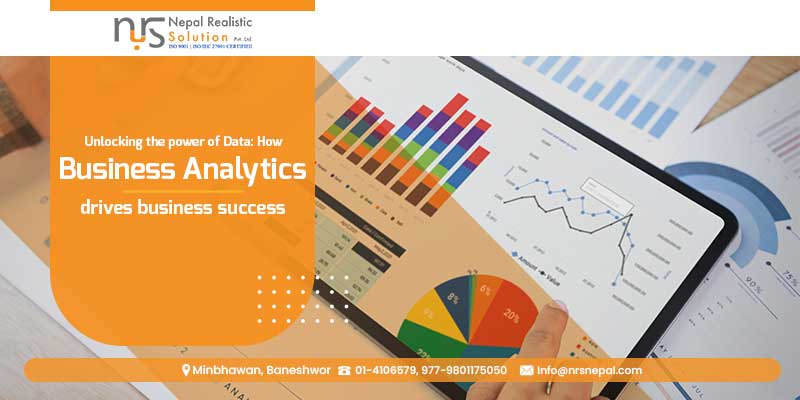
What is data analytics?
Data analytics is the process of analyzing large and complicated sets of data to find useful information that can help businesses in making better decisions. It involves using different methods, tools, and technology to interpret data. Data analytics is used in a wide range of industries and applications, including finance, medical, marketing, logistics, and more.
Why is data analytics important to businesses?
Data analytics is crucial for businesses as it helps them in decision-making, improving processes, generating new strategies, and helping to gain a competitive advantage. In today’s digital world, the way businesses operate has changed a lot due to the huge amount of data being generated. The abundance of data has revolutionized the way businesses work. The companies that can leverage the power of data analysis gain a competitive edge over those that don't. By evaluating data, optimizing operations, and creating new prospects, businesses can identify possibilities as well as risks. In short, data analysis helps businesses thrive in today's digital world.
What are the uses of data analytics to businesses?
-
Analyzing customer behavior:
Businesses can understand customer behavior, likes and dislikes, and purchasing patterns by analyzing customer data. This information can help them create specific marketing plans, enhance customer satisfaction, and introduce new products and services that meet customer demands.
-
Increased operational effectiveness:
Businesses can discover ways to perform better, faster, and cheaper by analyzing operational data. This can lead to increased profitability and improved customer satisfaction.
-
Forecasting and predicting trends:
By analyzing old data, businesses can recognize trends and patterns and make predictions about future trends. This information can be used to develop strategic plans, make investment decisions, and identify new business opportunities.
-
Risk management:
Businesses can detect possible risks and take steps to mitigate them by analyzing financial and operational data. Recognizing fraud, reducing supply chain risks, and identifying possible financial threats are all instances of this.
-
Personalizing marketing efforts:
Businesses can create targeted marketing strategies that are personalized to specific customer segments by analyzing customer data. This can lead to improved customer interaction and increased sales effectiveness.
How can data analytics be implemented in businesses?
- Define business goals:
Prior to putting data analytics into practice, it's critical to determine the precise business goals you wish to accomplish. Your goals must be precise, measurable, and should align with your overall business strategy.
-
Identify data sources:
The next step after defining your business goals is to determine which data sources you will use to achieve those goals. This might include both internal information from sources like customer, sales, and operational data as well as information from outside external sources like market, competitor data, and social media data.
-
Collecting and storing data:
After identifying sources, the following step is to collect the data from those sources and store it in a centralized database. This database should be designed to accommodate many sorts of data collected while also ensuring that the data is organized, safe, and easily accessible.
-
Analyze data:
After gathering, organizing, and ensuring the accuracy of the data, the next step is to utilize analytical tools and methods to analyze the data and identify insights, patterns, and trends. These tools comprise statistical and quantitative techniques, as well as software technologies, to extract meaningful information from the data.
-
Convey insights:
Communicate the insights gained from data analytics to key stakeholders in your business. Using data visualization and other techniques to make the information more approachable, it is essential to convey the insights in a way that is simple to understand.
-
Develop an action plan:
Implementing an action plan based on data analytics insights is essential to accomplishing the previously stated business goals. Your strategy must include precise and measurable steps for bringing the data analysis results to use.
-
Monitor and evaluate results:
After implementing the action plan, it is necessary to monitor its performance and evaluate its efficiency in accomplishing the company's goals.
Businesses today rely extensively on data since it has become a critical component that drives their operations. Despite having access to huge amounts of data, turning it into a value is quite challenging. To accomplish this, businesses must have expert data analysts and an extensive data strategy that incorporates all the business's components.
Are you looking for a company that provides expert data analysis services? Nepal Realistic Solution is a management consulting firm that will help your business grow with data-driven insights and strategies. Get in touch with us today!